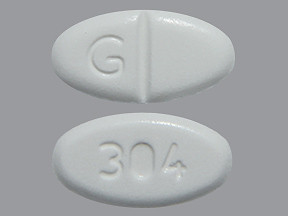NORETHINDRONE - ORAL
PHONETIC PRONUNCIATION: (nor-ETH-in-drone)
COMMON BRAND NAME(S): Aygestin
GENERIC NAME(S): norethindrone acetate
Uses
USES: This medication is used to treat women with abnormal bleeding from the uterus. It is also used to treat women who have stopped having menstrual periods for several months (amenorrhea) but who are not pregnant or going through menopause. In addition, this medication is used to treat a condition (endometriosis) in which tissue that normally lines the inside of the uterus is found outside the uterus in the abdomen/pelvic area, causing painful/irregular periods. Norethindrone is a type of female hormone (progestin). It is like the hormone progesterone that your body makes naturally. This medication works by stopping the normal growth of the uterus lining during the menstrual cycle and signaling hormone changes in the uterus to restore normal menstrual periods. This medication must not be used to test for pregnancy. Progestins are not effective in preventing miscarriages.
How to use NORETHINDRONE - ORAL
HOW TO USE: Read the Patient Information Leaflet provided by your pharmacist before you start using this drug and each time you get a refill. If you have any questions, consult your doctor or pharmacist. Take this medication by mouth as prescribed by your doctor. You may take it with food or after a meal to prevent stomach upset. Follow the dosing schedule carefully. Ask your doctor if you have any questions. The dosage is based on your medical condition and response to therapy. For the treatment of stopped menstrual periods and abnormal bleeding from the uterus, this drug is usually taken once daily for 5-10 days during the second half of the planned menstrual cycle or as directed by your doctor. Withdrawal bleeding usually occurs within 3-7 days after you stop taking the medication. Inform your doctor if your condition persists or worsens.
Side Effects
Precautions
Interactions
Overdose
Images
Reviews
Faq for NORETHINDRONE - ORAL
Norethindrone is an oral contraceptive pill commonly used to prevent pregnancy. It is also prescribed for menstrual cycle irregularities, endometriosis, and to control abnormal bleeding.
Norethindrone works by preventing the release of eggs from the ovaries (ovulation) and by altering the lining of the uterus to make it less suitable for the attachment of a fertilized egg. It also thickens the cervical mucus, making it harder for sperm to reach the uterus.
Common side effects of Norethindrone may include headache, nausea, breast tenderness, irregular bleeding, weight gain, mood changes, and decreased libido. It is important to consult a doctor if these side effects persist or become severe.
When taken as directed, Norethindrone is over 99% effective in preventing pregnancy. However, it is important to note that no contraceptive method is 100% effective, and it does not protect against sexually transmitted infections (STIs).
Norethindrone should be taken at the same time each day, preferably with food to help with absorption. It is important to follow the instructions provided by your healthcare provider and take the pill as directed for maximum effectiveness.
If you miss a dose of Norethindrone, take it as soon as you remember, even if it means taking two pills in one day. Use additional contraception (such as condoms) for the next 48 hours to ensure protection. If you miss more than one dose, consult your healthcare provider for further instructions.
Norethindrone is generally not recommended while breastfeeding as it may interfere with milk production. It is important to discuss with your healthcare provider about alternative contraceptive methods suitable for breastfeeding mothers.
Norethindrone may interact with certain medications, including antibiotics, anticonvulsants, and St. John's wort. These interactions can decrease the effectiveness of Norethindrone or lead to unexpected breakthrough bleeding. It is important to inform your healthcare provider about all the medications you are taking.
If you experience severe side effects such as chest pain, severe headaches, vision changes, severe abdominal pain, or signs of a blood clot, seek immediate medical attention. These symptoms may indicate a serious condition that requires medical intervention.
Disclaimer
IMPORTANT: HOW TO USE THIS INFORMATION: This is a summary and does NOT have all possible information about this product. This information does not assure that this product is safe, effective, or appropriate for you. This information is not individual medical advice and does not substitute for the advice of your health care professional. Always ask your health care professional for complete information about this product and your specific health needs.


No Reviews Yet